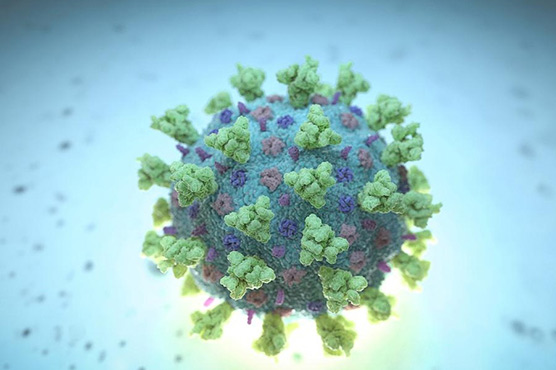Global efforts to develop vaccines, drugs to fight the coronavirus

Vaccines work by training the immune system to recognize and fight specific viruses or bacteria.
Researchers and drug companies are scrambling to develop vaccines and treatments to fight the new coronavirus that emerged in central China in December and has spread to more than two dozen countries, killing more than 2,000 people.
There are no proven treatments for the virus and experts say it could take a year or more to have a vaccine ready. The hope is that strict quarantines in China and elsewhere will contain the virus’ spread long enough for scientists to develop tools to fight it. The following is a list of some of those efforts:
VACCINES
Vaccines work by training the immune system to recognize and fight specific viruses or bacteria, providing immunity against them. China’s early release of the genetic sequence of the novel coronavirus has allowed several research groups and companies to get a quick start on vaccine development without needing live virus samples.
Several efforts are using various “plug-and-play” vaccine platforms to develop vaccines using genetic material, RNA or DNA, specific to the virus.
The U.S. National Institutes of Health has started work using a platform developed by U.S. biotech Moderna Inc. Scientists at the University of Queensland in Australia and Inovio Pharmaceuticals Inc are using a different platform. The work is backed by grants from global health emergency group the Coalition for Epidemic Preparedness Innovations (CEPI).
Novavax Inc, which said it created a vaccine candidate for Ebola within 90 days of the release of the genetic sequence, has also announced work on a coronavirus vaccine.
Large pharmaceutical companies including Sanofi and Johnson & Johnson also are working on coronavirus vaccines, with backing from the U.S. Biomedical Advanced Research and Development Authority (BARDA).
In China, officials are trying multiple vaccine candidates, including newer DNA and RNA vaccine approaches and a recombinant protein vaccine in which scientists replicate the proteins on the surface of the virus. Sanofi is using a similar method.
Treatments
To speed access to treatments, researchers are repurposing a number of existing drugs in hope of finding something that works against the new virus.
BioCryst Pharmaceuticals Inc’s Galidesivir works by interfering with a virus’ ability to replicate. The antiviral has shown promise in a range of viruses, including cononaviruses, and proven to be safe in healthy volunteers. The work is backed by BARDA.
Regeneron Pharmaceuticals Inc is developing REGN3048-3051, a combination of two antibodies developed from immunized mice that have been genetically altered to produce “humanized” antibodies. The work expands on Regeneron’s partnership with the U.S. Department of Health and Human Services for a related coronavirus. Regeneron will test its drug in humans through the National Institute of Allergy and Infectious Diseases (NIAID).
Gilead Sciences Inc’s remdesivir is an antiviral that failed against Ebola, but has shown promise in monkeys against a related coronavirus. Gilead has partnered with Chinese researchers to conduct two clinical trials coordinated by the China-Japan Friendship Hospital in Beijing. The studies were expected to be completed in April.
Chinese officials are testing AbbVie’s two-drug HIV treatment Kaletra, which is designed to keep HIV from replicating in people. The hope is that it will do the same with the new coronavirus.
The antiviral favipiravir from Japan’s Toyama Chemical was developed to fight RNA viruses such as the new coronavirus. It has shown preliminary efficacy in a 70-patient clinical trial in Shenzhen city, officials said on Saturday.
The anti-malaria drug chloroquine phosphate is being tested in 10 hospitals in China in more than 100 patients. Preliminary results suggest it has at least some benefit in patients with pneumonia, Chinese officials said.
Chinese scientists also are treating some patients with blood from coronavirus survivors, an older technique that has been used to fight rabies, diphtheria and other infections. So far, 11 patients with severe pneumonia have shown significant improvement with the treatment, with no severe side effects, officials said.

